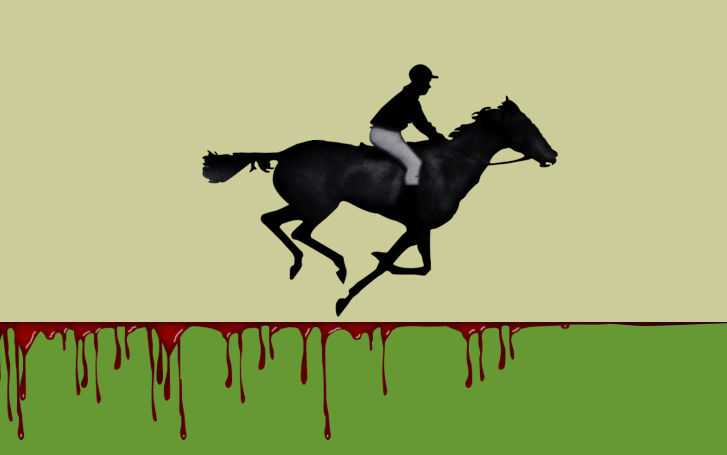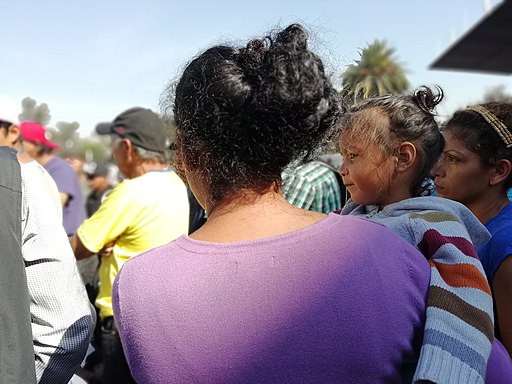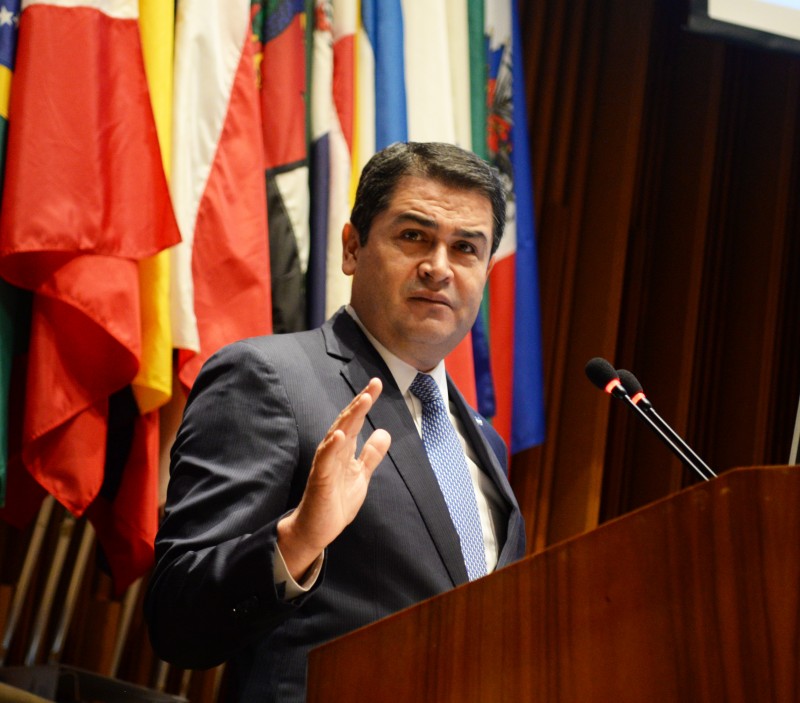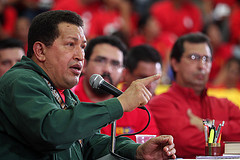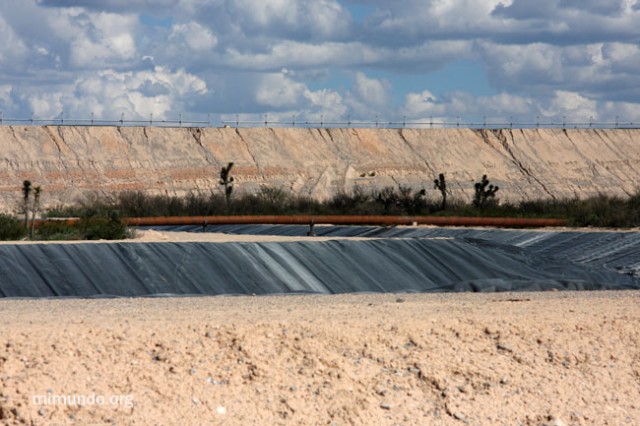
Brazil, Latin America: Week in Review
Brazilian Presidential Election To Go To Runoff; Dilma Rousseff Fails To Break 50 Percent Threshold
October 4, 2010 By Staff
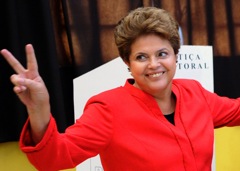
Frontrunner for the Brazilian presidency, Dilma Rousseff.
Today in Latin America
Top Story — With 96 percent of the votes counted as of Sunday night, no winner has been declared in the Brazilian presidential election, according to Brazilian press reports. The race will continue to a second-round vote on Oct. 31.
Dilma Rousseff of the governing Workers Party (PT) led the election with 46.34 percent of the vote, according to Brazilian daily A Folha de São Paulo. José Serra of the Brazilian Social Democracy Party (PSDB) held second place with 32.85 percent. Marina Silva of the Green Party (PV) came in as a strong third-place candidate with 19.64 percent.
Under Brazilian law, a candidate can only win a presidential race if they receive more than 50 percent of the vote. Because Rousseff did not manage to break that threshold, she will face Serra in a runoff election at the end of the month.
Though Rousseff had hoped her strong lead in the polls would translate into a first-round election, current President Luiz Inácio Lula da Silva appeared to anticipate the possibility of a runoff on Sunday, telling reporters “I didn’t win any election in the first round,” according to The Guardian.
Congressional and gubernatorial elections were also held throughout the country.
The vote took place as Brazil is enjoying strong economic growth and a reduction in the size of its notorious wealth gap, which has fed the popularity President Lula da Silva the PT.
A recent poll from the Pew Research Center found that Brazilians are feeling optimistic about the economy and their country’s role in world affairs, The Miami Herald reports. Sixty-two percent of Brazilians said they felt their economy was in good shape. Of the 22 countries surveyed, on the Chinese had more positive opinions about their economy.
Just Published at the Latin America News Dispatch
- Congress postponed a vote on a bill that would ease restrictions on Americans traveling to Cuba. Raisa Camargo reports from Washington.
- With Venezuela having gone through historic parliamentary elections on Sunday, Juan Fajardo takes a look at how both supporters and opponents of Hugo Chávez have used marches and street protests to vie for control of public space in this photo essay.
- A new government program aims to make Chile a heaven for start-ups. David Mauro has the story.
- With Brazil’s election season in full swing, Hugo Passarello Luna takes a look Luiz Inácio “Lula” da Silva’s presidency.
- Chile’s President, Sebastián Piñera, laid out an ambitious program to bring his country into the ranks of the developed world in a speech on Wednesday.
- The Senate voted to stall the DREAM Act on Tuesday, which had been inserted as an amendment to the defense appropriations bill. Latin America News Dispatch contributor Raisa Camargo reports from Washington.
Headlines from the Western Hemisphere
North America
- The U.S. Supreme Court will consider important cases on immigration law during its new term that begins on Monday.
- An explosion at a plaza in northeastern Mexico injured 15 people, an attack authorities blamed Sunday on drug cartels targeting the civilian population to cause chaos.
- 22 Mexican tourists went missing in Acapulco on Thursday after they were kidnapped by gunmen, the local media reported on Saturday.
Caribbean
- The Cuban government contacted about a dozen people who were jailed for crimes againstthe state, asking if they would accept freedom in exchange for exile.
- Cuba Monday starts a six-month process of laying-off half a million state workers, part a shift that has many Cubans worried.
- Gunmen killed an engineer at a relocation camp for Haitian earthquake survivors, forcing construction to be suspended on part of the site.
Central America
- Guatemalan police captured a suspected drug trafficker wanted in the United States for cocaine smuggling and seized nearly $2 million in cash that his brother was carrying in two bags.
- 58 people died in Nicaragua as a result of heavy rains and flooding, while another 8,000 are being in temporary shelters.
Andes
- Colombian police foiled an attempt to abduct the brother of slain narco kingpin Pablo Escobar, authorities said Friday.
- Venezuelan President Hugo Chávez said Sunday that members of the country’s civilian militia should be issued weapons to be armed and ready at all times.
- Ecuador’s government has stepped back from a threat to dissolve congress and promised to revise a controversial austerity law that triggered anarchic police protests.
Southern Cone
- Brazilians will elect their next president Sunday, with Worker’s Party candidate Dilma Rousseff expected to win in the first round.
- A Chilean newspaper reported that the Argentine government granted asylum to ex-guerrilla Sergio Apablaza because it did not consider his crimes to be terrorist acts.
- Thirty Mapuche Indians ended a hunger strike Friday after reaching an agreement with the Chilean government to enact legal reforms so they would not be tried as terrorists.
- Members of Malaysia’s armed forces will travel to Uruguay to retrieve two fighter jet engines stolen in Malaysia and sold on the black market to the Uruguayan government.
- Paraguayan President Fernando Lugo’s doctor announced that the president will not require surgery to treat his non-Hodgkins lymphoma.
Image: Agência Brasil.
